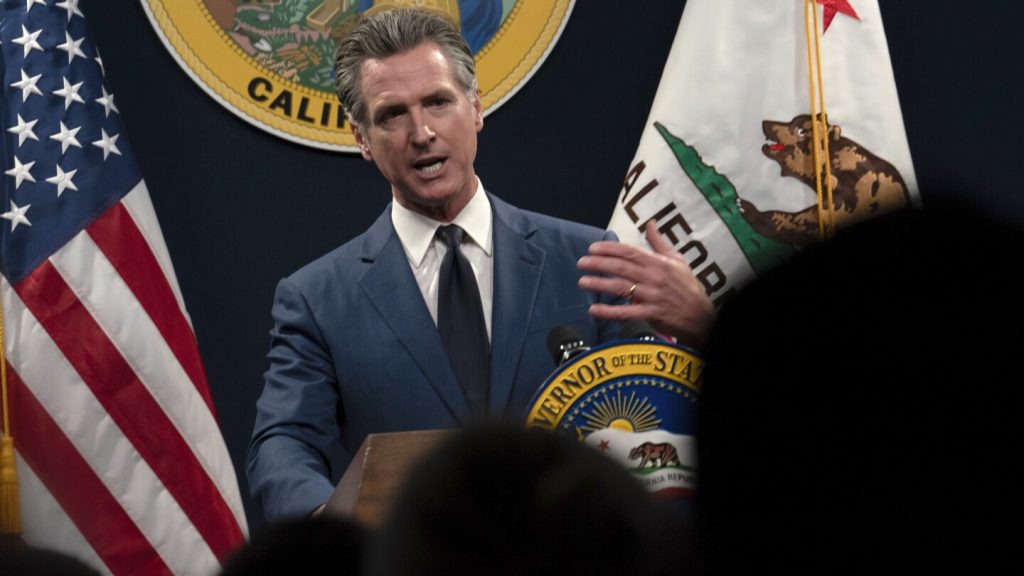California is facing a budget crisis, with Democratic leaders grappling with a significant deficit after enjoying a substantial surplus just three years ago. The state’s revenues have been impacted by inflation and a slowdown in the technology industry, leading to a second consecutive year of a multibillion-dollar shortfall. Governor Gavin Newsom has introduced a $288 billion spending plan for the upcoming fiscal year, aiming to address the deficit through budget negotiations with Democratic lawmakers. The budget must be passed by June 15 to avoid lawmakers missing their paychecks.
While Newsom announced a $26.7 billion deficit, the actual figure is closer to $45 billion when factoring in previously agreed upon spending cuts and delays. These measures include cuts to school, welfare, climate programs, and a delay in spending for various programs. California’s constitution requires a balanced budget, forcing lawmakers to either raise taxes or cut spending. Newsom’s proposal focuses on cuts across 260 state programs, including eliminating vacant state worker jobs, reducing funding for healthcare providers, and scaling back on operating costs for state agencies.
Some of the proposed cuts include eliminating 10,000 vacant state worker jobs, clawing back funds for healthcare providers, trimming operating costs for state agencies, and cutting funding for broadband initiatives, housing, education, public health, and mental health services. While Newsom has stated that he could balance the budget without raising taxes, his proposal includes actions that could be seen as tax increases, such as suspending the net operating loss tax deduction for businesses and increasing taxes on managed care organizations. The plan also involves tapping into reserve funds to address the deficit.
The budget proposal by Newsom has sparked concerns and debates among lawmakers and stakeholders, with some expressing opposition to the proposed cuts in various programs. The plan includes measures to address the deficit by reducing spending across multiple sectors, including healthcare, education, housing, and public health. As California navigates through this budget crisis, Democratic leaders will have to make tough decisions to ensure the state’s financial stability and meet the constitutional requirement of a balanced budget. The upcoming budget negotiations will be critical in determining the final outcome and the impact on the state’s residents.


